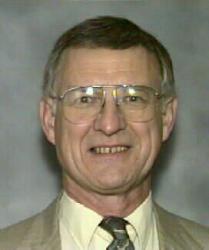Planning worship?
Check out our sister site, ZeteoSearch.org,
for 20+ additional resources related to your search.
- |
User Links
Person Results
Helen Otte
b. 1931 Versifier of "Come, Praise the LORD, My Soul" in Psalter Hymnal (Gray) Helen Ann (Brink) Otte Walter (b. Grand Rapids, MI, 1931) versified this psalm in 1982 for the Psalter Hymnal. She received her education at Calvin College, Grand Rapids, Michigan, and has worked as a teacher, proofreader, and librarian. She was a member of the Poets' Workshop that worked with the revision committee to prepare psalm versifications for the 1987 Psalter Hymnal. After her first husband died and she remarried, she remained active as a freelance writer, especially of children's stories and dramas, some of which have been published in Reformed Worship under the name Helen Walter.
Bert Polman
Helen Otte
Howard Slenk

b. 1931 Harmonizer of "GENEVAN 103" in Psalter Hymnal (Gray) Howard J. Slenk (b. Holland, MI, 1931) received his undergraduate education from Calvin College and his Ph.D. from Ohio State University in Columbus; his dissertation was entitled The Huguenot Psalter in the Low Countries. He taught at Trinity Christian College in Palos Heights, Illinois, and at Calvin College from 1967 until retiring in 1995. From 1970 to 1993 Slenk served as organist and director of music at Woodlawn Christian Reformed Church in Grand Rapids. His published works include A Well-Appointed Church Music (1960) and various articles on Genevan psalmody.
Bert Polman
Howard Slenk
D. W. Whittle

1840 - 1901 Author of "Redemption Ground" in Redemption Songs [Also published under the pseudonym El Nathan.]
===============
Whittle, D. W.. Six of his hymns (Nos. 295, 308,363, 385, 386, 417) are given in I. D. Sankey's Sacred Songs and Solos, under the signature of "El Nathan."
--John Julian, Dictionary of Hymnology, Appendix, Part II (1907)
D. W. Whittle
James McGranahan

1840 - 1907 Person Name: J. M'Granahan Composer of "REDEMPTION GROUND" in Redemption Songs James McGranahan USA 1840-1907. Born at West Fallowfield, PA, uncle of Hugh McGranahan, and son of a farmer, he farmed during boyhood. Due to his love of music his father let him attend singing school, where he learned to play the bass viol. At age 19 he organized his first singing class and soon became a popular teacher in his area of the state. He became a noted musician and hymns composer. His father was reluctant to let him pursue this career, but he soon made enough money doing it that he was able to hire a replacement farmhand to help his father while he studied music. His father, a wise man, soon realized how his son was being used by God to win souls through his music. He entered the Normal Music School at Genesco, NY, under William B Bradbury in 1861-62. He met Miss Addie Vickery there. They married in 1863, and were very close to each other their whole marriage, but had no children. She was also a musician and hymnwriter in her own right. For a time he held a postmaster’s job in Rome, PA. In 1875 he worked for three years as a teacher and director at Dr. Root’s Normal Music Institute. He because well-known and successful as a result, and his work attracted much attention. He had a rare tenor voice, and was told he should train for the operatic stage. It was a dazzling prospect, but his friend, Philip Bliss, who had given his wondrous voice to the service of song for Christ for more than a decade, urged him to do the same. Preparing to go on a Christmas vacation with his wife, Bliss wrote McGranahan a letter about it, which McGranahan discussed with his friend Major Whittle. Those two met in person for the first time at Ashtubula, OH, both trying to retrieve the bodies of the Bliss’s, who died in a bridge-failed train wreck. Whittle thought upon meeting McGranahan, that here is the man Bliss has chosen to replace him in evangelism. The men returned to Chicago together and prayed about the matter. McGranahan gave up his post office job and the world gained a sweet gospel singer/composer as a result. McGranahan and his wife, and Major Whittle worked together for 11 years evangelizing in the U.S., Great Britain, and Ireland. They made two visits to the United Kingdom, in 1880 and 1883, the latter associated with Dwight Moody and Ira Sankey evangelistic work. McGranahan pioneered use of the male choir in gospel song. While holding meetings in Worcester, MA, he found himself with a choir of only male voices. Resourcefully, he quickly adapted the music to those voices and continued with the meetings. The music was powerful and started what is known as male choir and quartet music. Music he published included: “The choice”, “Harvest of song”, “Gospel Choir”,, “Gospel hymns #3,#4, #5, #6” (with Sankey and Stebbins), “Songs of the gospel”, and “Male chorus book”. The latter three were issued in England. In 1887 McGranahan’s health compelled him to give up active work in evangelism. He then built a beautiful home, Maplehurst, among friends at Kinsman, OH, and settled down to the composition of music, which would become an extension of his evangelistic work. Though his health limited his hours, of productivity, some of his best hymns were written during these days. McGranahan was a most lovable, gentle, modest, unassuming, gentleman, and a refined and cultured Christian. He loved good fellowship, and often treated guests to the most delightful social feast. He died of diabetes at Kinsman, OH, and went home to be with his Savior.
John Perry
James McGranahan


 My Starred Hymns
My Starred Hymns


